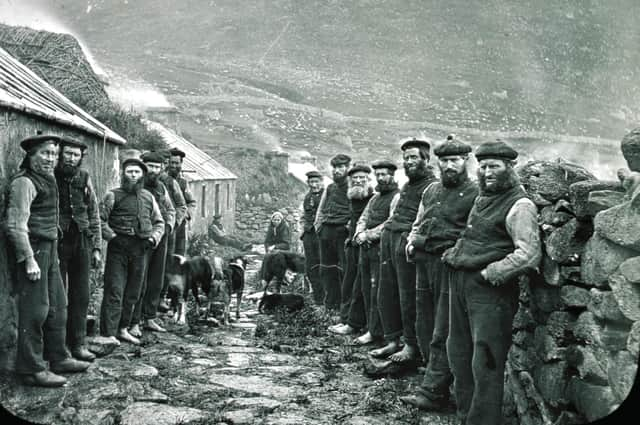St Kilda evacuation remembered 90 years after islanders pleaded for help to start new lives


The last 36 people living in the archipelago 40 miles west of the Outer Hebrides were evacuated in August 1930 – bringing to an end 4000 years of human habitation.
They had asked for help three months earlier on 10 May when they wrote a letter to the Government saying that life was no longer sustainable.
Advertisement
Hide AdAdvertisement
Hide AdIt was passed to the skipper of the first passing trawler to post. Soon afterwards George Henderson, inspector of public health, went to St Kilda and reported back that “swift action” was required.
The isolated cluster of uninhabited islands has been in the care of the National Trust for Scotland (NTS) since 1957. It is home to nearly one million seabirds and is home to the UK’s biggest colony of Atlantic puffins.
Julie Hunt, chairwoman of the St Kilda Club conservation body, said the decision to leave the archipelago was difficult but necessary.
She said: “They didn’t want to go but knew it was the best thing to do. They’d just come out of a particularly devastating winter and things had got harder and harder for them. They weren’t self-supporting and able to ‘better themselves,’ as the letter says.
“They knew they couldn’t survive but they didn’t know what the other options were. It had got to the point that they were relying on ships coming in and those were becoming less frequent.
“There’s a history of them sending letters out on the mail boats asking for food as they were starving.
“The younger islanders were more aware of the world outside and wanted to start afresh. For some of the older members of the community, the decision to leave was harder. They were more of the opinion that St Kilda was their life and all they’d ever known.
Advertisement
Hide AdAdvertisement
Hide Ad““The islanders weren’t looking for a handout. Having lived no-where else but this tiny storm-battered island, they didn’t know what work they could do or how they would go about getting it. Boats were so infrequent that communication with the mainland to set up a new life was even more difficult.
“They were happy to work but they didn’t know what that could be. The irony was they went to work for the Forestry Commission, when St Kilda has no trees.”
Comments
Want to join the conversation? Please or to comment on this article.